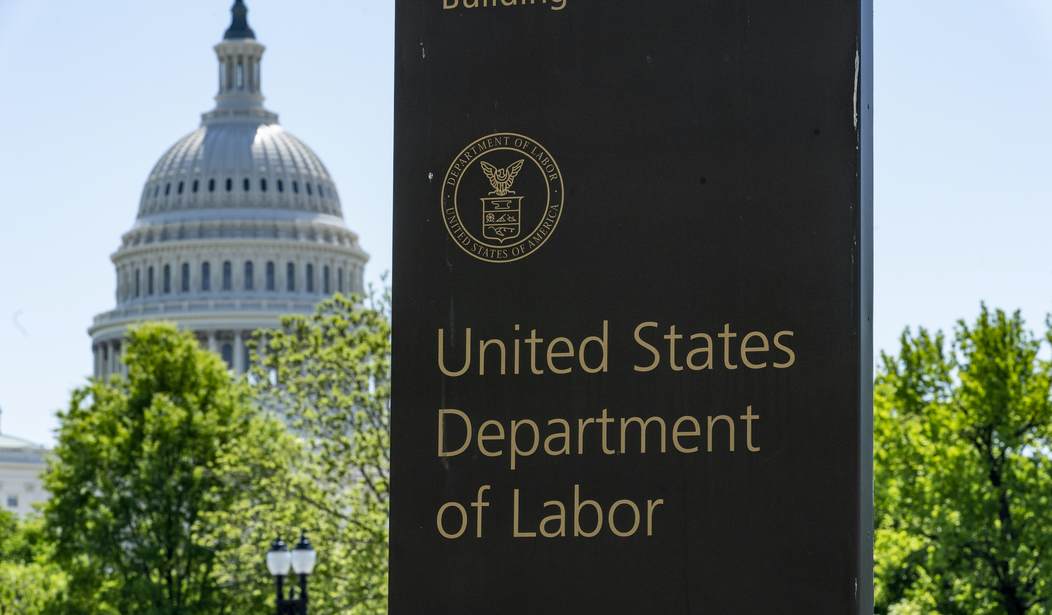As the Biden administration continues to push for higher taxes on individuals and businesses, the Department of Labor is expected to release a draft rulemaking that will limit the availability of certain retirement savings options for individual investors and reduce Americans’ nest eggs. The rulemaking is expected to mimic an Obama administration rule which would reduce retirement savings for millions of minorities and lower income Americans.
DOL’s forthcoming rule is expected to reduce retirement savings for minorities. One study commissioned by the Hispanic Leadership Fund found that a reinstatement of Obama’s 2016 rule — which was vacated by the Fifth Circuit Court of Appeals in 2018 for exceeding DOL’s statutory authority — would shrink retirement savings for lower income Americans. The study states that it would “reduce the projected accumulated retirement savings of 2.7 million individuals with incomes below $100,000 by approximately $140 billion over 10 years.” The study also concludes that a revival of the 2016 rule would “have the most adverse effects on Blacks and Hispanics – reducing their projected accumulated IRA savings by approximately 20 percent over 10 years – contributing to an approximately 20 percent increase in the wealth gap attributable to IRAs for these individuals.”
Comments submitted to DOL prior to the issuance of the final 2016 rule, expressed concerns that it would limit investment options for middle-income households. A comment letter drafted by PFS Investments, Inc., bluntly stated that the rule would “harm the very consumers it was intended to protect” and young families would be “limited to investing in taxable accounts, or be left with no in-person financial professional.” The Investment Company Institute argued in one of their comment letters that the application of the fiduciary standard was so broad that brokers would have “no choice but to discontinue providing those information services” while investors will have to “pay substantially higher fees” to get the same information from other advisers.
Recommended
If DOL moves forward with a rule in the next few months that parallels provisions of the 2016 rule, middle America will lose access to investment information and services while wealthy Americans will continue to save. Instead of bridging the wealth divide in America, the DOL’s imminent rule would widen the gap.
DOL should look to the Securities and Exchange Commission’s Regulation Best Interest as a template for how to oversee retirement plans. Instead of placing brokers and investment advisers under the same regulatory umbrella, any new regulatory framework should be tailored to how the businesses operate. In 2019, the SEC stated in an interpretative document that “Investment advisers and broker-dealers have different types of relationships with investors, offer different services, and have different compensation models.”
The work rendered by a broker and an investment adviser differs and should be regulated according to the varying business models. Instead of providing direct investment advice, brokers act “on the direction of the plan participant to buy or sell a particular security or mutual fund” and “may have a lower standard of duty.”
The difference in how brokers and investment advisers operate justifies the need for separate standards of conduct.
The upcoming DOL rule should complement Regulation BI, which requires brokers to act in the “best interest” of their customers, to mitigate compliance costs. A new standard could cost brokers millions of dollars in compliance costs on top of the millions they have already spent to comply with Regulation BI. Deloitte conducted a survey of twenty brokers and found they spent $114 million on compliance, including $61 million on technology costs. Compliance costs since the effective date of Regulation BI is an aggregate annualized cost of “$59 million or an average annual spend of over $2.9 million per firm.”
The total brokerage industry is estimated to have spent billions of dollars complying with Regulation BI. Deloitte found that the cost of complying with Regulation BI for the industry at large composed of up-front costs of “approximately $17.07 billion” with an “aggregate annualized spend” of approximately $6.25 billion.
Instead of forcing brokers to spend millions of additional dollars on new government compliance, which will more than likely affect the extent of services provided, the federal government should focus on enforcing regulations that are already in place and already provide adequate safeguards for investors.
Overly stringent regulation threatens to put minorities and lower income Americans at a disadvantage when it comes to saving for retirement. DOL is at risk of turning this into a reality if it supersedes its statutory authority and writes a rule that conflicts with Regulation BI and restricts financial savings options for Main Street.
Bryan Bashur is a federal affairs manager at Americans for Tax Reform.
























Join the conversation as a VIP Member